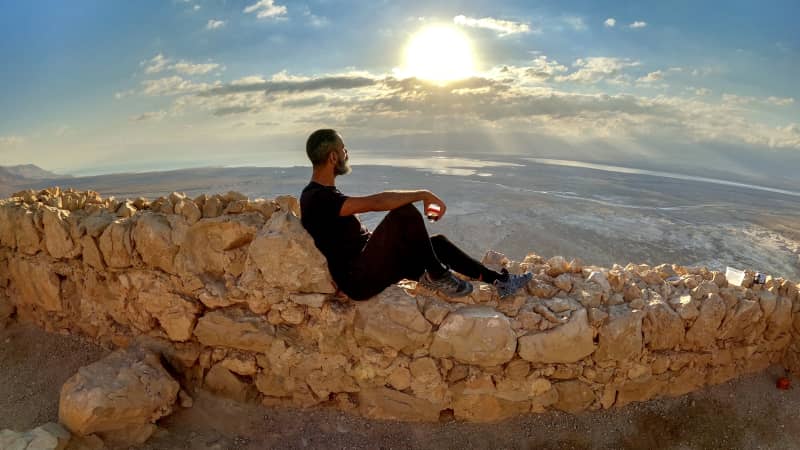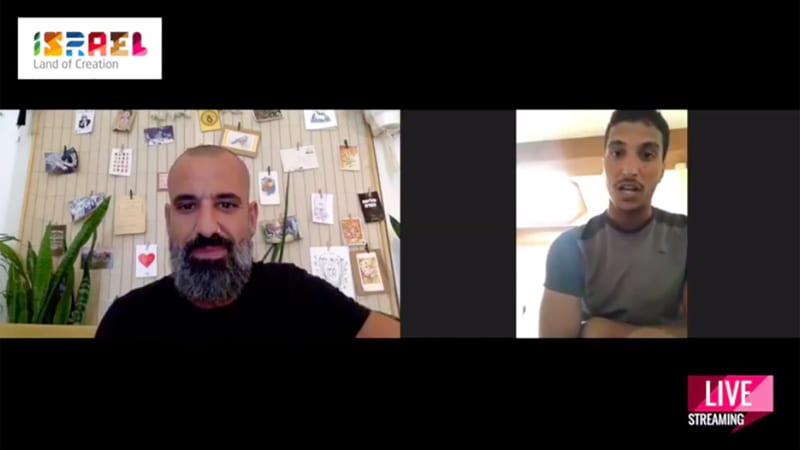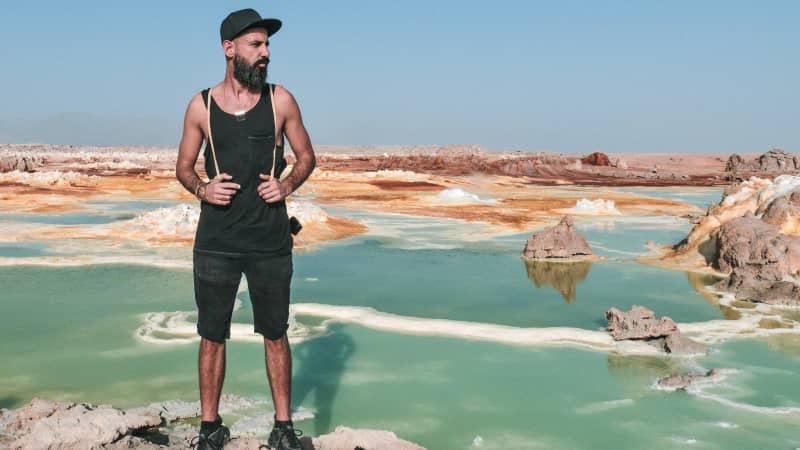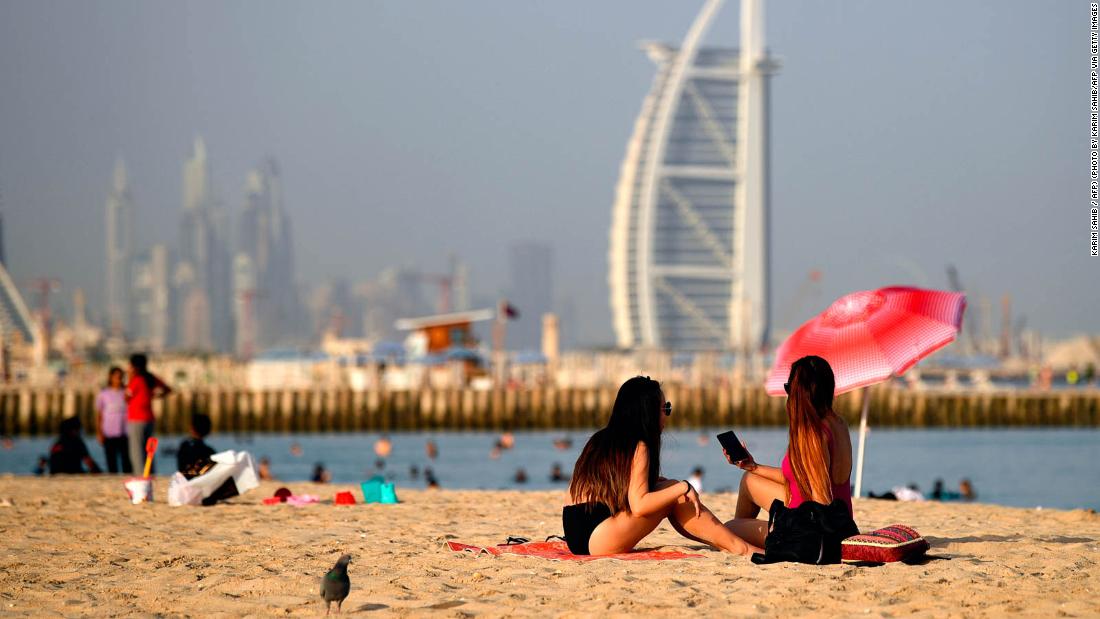Recognition, finally
Since Israel’s creation in 1948, the nation has been recognized officially by only two of the 22 states in the Arab League: Egypt and Jordan.
Across the Persian Gulf and much of the Arab world, Israeli travelers have traditionally been banned from entry thanks to their passports not being acknowledged. Citizens of most Arab countries, in turn, have been incapable of traveling to Israel to visit the holy sites of Jerusalem and the beaches, restaurants and nightlife of Tel Aviv.

Oman is widely expected to be the next to jump in line to allow Israeli travelers in.
Courtesy Six Senses Zighy Bay
Saudi Arabia opened its airspace to Israeli jetliners in August, a historic decision after decades of requiring Israeli planes to track a wide hook around the Persian Gulf to avoid crossing into its air territory, and they are rumored to be next in terms of full diplomatic relations.
There are whispers that Morocco, which already allows travel to and from Israel, is also now mulling the move.
Welcome tourists
All of these political shifts have injected massive optimism into the tourism industries of Israel and the Gulf Nations, which have been battered by the coronavirus and are more than eager for a jump start.
Israeli interest
Israel is a tiny country of fewer than 9 million citizens. But Cohen says the excitement among them to explore the Persian Gulf is pretty universal.

Israel is a tiny country of fewer than 9 million citizens. But Cohen says the excitement among them to explore the Persian Gulf is pretty universal.
Courtesy of Peleg Cohen
“There are a lot of types of Israelis, but I think all types of Israelis will want to fly there,” Cohen said in a phone call from his hometown in the northern Israeli city of Nahariya, where he has been riding out the pandemic. “Dubai, and the Emirates, has so much to offer the Israeli market,” he said, adding that even the nation’s religious Jews, who observe Shabbat and the dietary laws of kashrut, will want to take the trip.

Khalifa Al Mazrouei, a fellow travel blogger and renowned daredevil from Dubai, and Cohen participated in a live Facebook chat about travel between the UAE and Israel for the Israeli Ministry of Tourism.
Israel Ministry of Tourism/Debra Kamin
The two have been chatting frequently since their Facebook appearance together on September 15.
“Arab people never thought we would have relations between Israel and the UAE,” he said in a phone call. “What we always have heard is that they [Israelis] were bad, and they were dangerous. We’ve heard this since we were kids.”
Now that he knows he can travel to Israel, however, he’s taken it upon himself to help dispel that stereotype in Emirati society. And as he’s educated himself about the diverse terrain of Israel, chatting with Israeli bloggers and influencers about the nation’s deserts, sea and mountains, he’s started sharing his excitement about visiting Israel with his own Emirati followers.
“I didn’t think [Israelis] would welcome me in their country, and in fact they are really excited — more excited than we are,” he said. “So I feel like it’s my responsibility to show people here about their traditions and their places, so Emiratis understand it.”
Changing tide

Now that Al Mazrouei knows he can travel to Israel, he’s taken it upon himself to help dispel negative stereotypes of Israelis which persist in parts of Emirati society.
Courtesy Khalifa Al Mazrouei
Al Mazrouei is far from the only one making plans for Israelis’ arrival in Dubai.
In early September, Elli’s Kosher Kitchen, a kosher catering business run by a local South African Jew who makes up part of Dubai’s small Jewish community, partnered with Habtoor Hospitality to bring kosher-certified meals to a number of local Dubai hotels, including the Hilton Dubai Al Habtoor City.
El Al Airlines, which flew a pilot flight of journalists and diplomats from Tel Aviv to Dubai on August 31 to much fanfare, is expected to announce regular nonstop service soon, according to numerous news reports across Israeli media.
“The peace agreement creates enormous potential for tourism between Israel and the United Arab Emirates, both in terms of bilateral tourism and opening both countries to new target markets,” said Amir Halevi, director general of Israel’s Ministry of Tourism.
“Contacts between representatives of the two countries are currently taking place in a variety of aspects related to tourism. This includes aviation and tourist visa agreements from both countries, as well as creating marketing agreements for joint Middle East tour packages. These packages will combine a visit to Abu Dhabi, Dubai, Jerusalem and Tel Aviv with other Middle East countries, on flights that will overfly Saudi Arabia.”
Tensions with Turkey
Even the option to simply transit through Dubai marks a new world of travel opportunities for Israelis, who have historically been required to transit through either Turkey or Jordan if they wished to travel anywhere in the Arab world via Tel Aviv.

The Israeli-born travel blogger and photographer Peleg Cohen has visited 150 countries plans to make Dubai his next.
Courtesy of Peleg Cohen
“As such, their relations with Israel have been growing for years, and this is really just an admission of what we already know to be true: that the two countries are friendly and see eye-to-eye on many issues, and not just the position of Iran and its influence in the region.”
After participating in the video chat with Cohen, Al Mazrouei was surprised to learn that many Jews share traditions and language with Arabs, including Cohen himself, whose family comes from Tunisia.
Many Israelis who watched the video chat have reached out to him and invited him to explore both the Israeli desert and the mountains, which he hopes to do soon.
“I’ll be the first one to fly to Israel — unless Peleg is on his way to Dubai, and then I’ll wait for him here, because I will meet him and show him around,” he said with a laugh.
